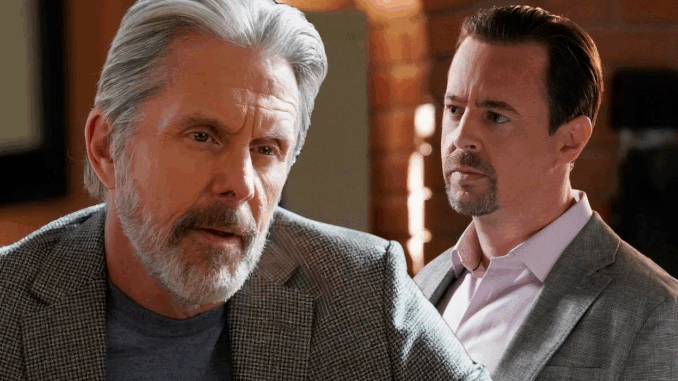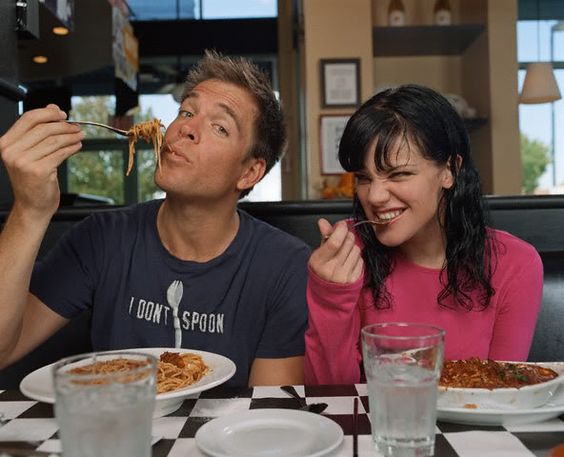
After 22 seasons of cases, chases, and cliffhangers, NCIS knows how to deliver drama. But when it comes to its villains, the show’s record has been… uneven. Season 23’s main antagonist was hyped as the next big threat to the team, someone meant to keep viewers glued to their screens. Instead? Fans were left shrugging, meme-making, and—worst of all—forgetting the villain’s name before the season even ended.
And yet, here’s the kicker: this lackluster baddie doesn’t even scratch the surface of NCIS’s real villain disasters.
Over the past two decades, we’ve seen some antagonists so flat, so baffling, and so poorly executed that Season 23’s “big bad” almost feels like a minor offense. Let’s dig in.
Why Season 23’s Villain Fell Flat
A Motive That Meant Nothing
Every great villain needs a “why”—a deep, believable reason for their actions. Without it, they’re just… scenery with a gun. Season 23’s antagonist had endless screen time but zero emotional weight. No tragic past. No complex ideology. Just chaos for chaos’ sake.
Copy-Paste Storytelling
Longtime fans had déjà vu for a reason—this storyline felt recycled from stronger, more dangerous villains in earlier years. Instead of fresh twists or shocking betrayals, the arc leaned on tired tropes and predictable beats.
The Vanishing Act
The character would disappear for episodes at a time, killing any sense of dread. If viewers keep forgetting the villain exists, there’s no tension to hold onto.
But They’re Not the Worst… Not By a Long Shot
In the spirit of perspective, let’s revisit the hall of shame—the ten worst NCIS villains ever—the ones who truly tested our loyalty.
1. Sahar – Ari Haswari’s Sister
Intended as a deeply personal threat, Sahar instead came off like a soap opera plot gone wrong. Her motivations were tangled beyond reason, and her arc overstayed its welcome.
2. Harper Dearing (Season 9)
Yes, he blew up the Navy Yard. Yes, he had the resources to cause chaos. But emotionally? Flat as a pancake. His revenge plot lacked nuance or humanity.
3. The Phantom 8
An elite secret group? Sounds exciting—until it devolved into confusion and inconsistency. They became more of a headache than a threat.
4. Jonas Cobb – The Port-to-Port Killer
Built up as terrifying… until the final reveal fizzled. All suspense evaporated, leaving fans underwhelmed.
5. Paul Lemere (Season 19)
A case study in too little, too late. The writers teased layers of complexity, but by the time motivations were clear, no one cared anymore.
6. Trent Kort
Flipping between friend and foe so often that viewers stopped investing. Any emotional impact he once had was lost.
7. Dr. Cyril Taft
Not a traditional villain, but his murky morality and erratic role muddled the narrative. Too confusing to be compelling.
8. The Reynosa Cartel
Marketed as a major threat. Delivered as a plotline made of paper. Forgettable motives and stock bad-guy moves.
9. The Le Grenouille Arc
Could’ve been a rich espionage tale. Instead, it became a bloated mess that dragged over multiple seasons.
10. Ziva’s Fake Death Villain
Perhaps the most insulting twist of all—baiting fans with Ziva’s death, only to reveal a flimsy, anticlimactic culprit.
The Anatomy of a Great NCIS Villain
After watching the highs and lows, the recipe for a great antagonist is clear:
-
Emotional Connection: A link to the team’s personal lives that forces viewers to care.
-
Realistic Motivations: More than “revenge”—give us philosophy, trauma, or ideology.
-
The Element of Surprise: If the twist can be guessed 15 minutes into the episode, the villain’s already lost.
Could Season 23’s Villain Have Been Saved?
Absolutely. A handful of flashbacks, more personal stakes, and a consistent presence across episodes could’ve transformed this character into something memorable. The actor wasn’t the problem—the writing simply didn’t give them anything to sink their teeth into.
The Fan Verdict
Social media lit up with sarcastic praise and nostalgic longing for better bad guys. “I miss Harper Dearing,” one fan tweeted. “And that’s saying a lot.”
Ouch.
Looking Ahead: Will Season 24 Step Up?
With Season 24 looming, there’s hope for a villain who truly rattles the team and the audience. A threat that doesn’t vanish for half the season. Someone with real menace, unpredictable moves, and stakes that feel personal.
Why We Keep Watching
Because it’s NCIS. Even with misfired villains, the heart of the show—the team, their banter, and their bonds—keeps us coming back. The villains may stumble, but Gibbs’ (and now Parker’s) crew always carries the day.
Bottom Line: Season 23’s villain was disappointing. But in the grand tradition of NCIS, they were far from the worst offender. The real disasters are already enshrined in the annals of NCIS history, and fans can only hope the next big bad learns from their mistakes.

5 Burning Fan Questions About NCIS Villains
-
Most terrifying ever? Ari Haswari—his blend of intellect, unpredictability, and emotional ties to the team remains unmatched.
-
Based on real events? Not this time—Season 23’s villain was purely fictional.
-
Why so many underdeveloped villains? Episodic storytelling often leaves little room for in-depth exploration.
-
Will recurring villains return? Fans are pushing for it, and the writers may well revisit the format.
-
Do spin-offs do villains better? Sometimes—NCIS: LA has produced a few memorable long-term foes, though it’s not immune to the same pitfalls.